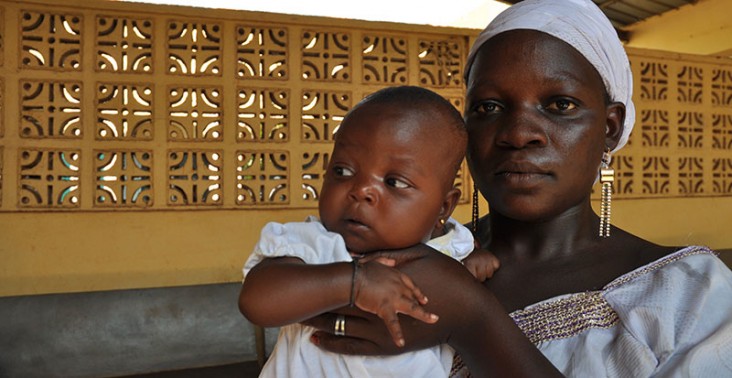- What We Do
- Agriculture and Food Security
- Democracy, Human Rights and Governance
- Economic Growth and Trade
- Education
- Ending Extreme Poverty
- Environment and Global Climate Change
- Gender Equality and Women's Empowerment
- Global Health
- Water and Sanitation
- Working in Crises and Conflict
- U.S. Global Development Lab

The Health Policy Project (HPP) helped to translate health program goals into policies, plans, and actions in partner countries worldwide. HPP helped build in-country capacity for policy, governance, finance, and advocacy for strategic, sustainable, and equitable health programming and addressed barriers to health services due to gender inequalities, socioeconomic status, and discrimination and stigma.
HPP closed in September of 2015. Over the course of 5 years, HPP collaborated with more than 375 partners in 48 countries, training more than 10,000 people and mobilizing more than $520 million in support of its work. Through these efforts, HPP helped establish 49 distinct policy monitoring and accountability mechanisms and contributed to the adoption of 105 policies and plans in-country.
The strategic objective of HPP was to build in-country capacity by identifying, improving, and sustaining institutional and individual competence and structures for effective policy, advocacy, and governance.
HPP provided the following services to help country partners achieve health program goals:
- Strengthened community ownership to facilitate country-led processes of health program formulation and monitoring; built the advocacy capacity of those most affected by policy decisions; and built the capacity of policymakers to gather, analyze, and utilize data in program planning and design.
- Promoted an enabling policy environment to develop evidence-based national policies and to operationalize them at the district and local levels.
- Maximized resources through country-led investment, planning, coordination, and monitoring to improve efficiency, effectiveness, accountability, and equitability.
- Leveraged partnerships from across sectors, emphasizing transparency, communication, and accountability.
- Enhanced strategic information and monitoring and evaluation to promote country-owned health management information systems and evidence-based planning and advocacy.
The Health Policy Project was a $153 million, 5-year, USAID-funded cooperative agreement that extended from September 2010 to September 2015. It was implemented worldwide by Palladium, in collaboration with Plan International; Avenir Health; Partners in Population and Development, Africa Regional Office (PPD ARO); Population Reference Bureau (PRB); RTI International; and White Ribbon Alliance for Safe Motherhood (WRA).
Visit the Health Policy Project website for more information.







Comment
Make a general inquiry or suggest an improvement.